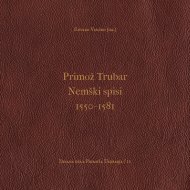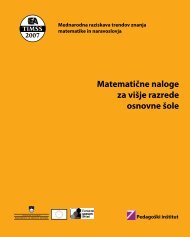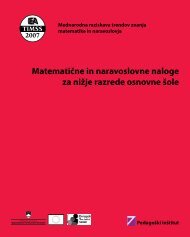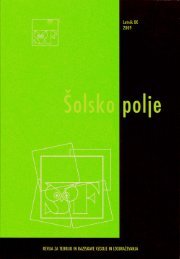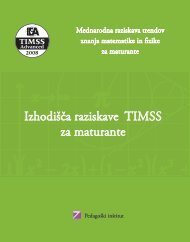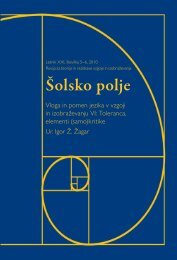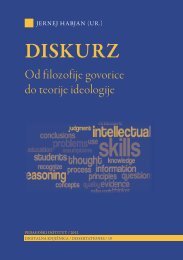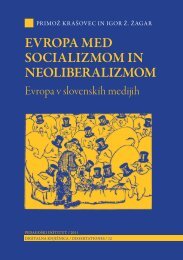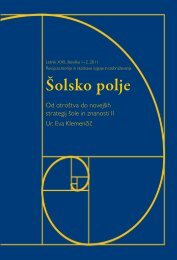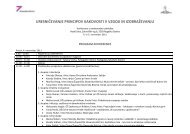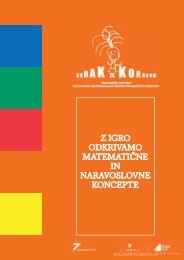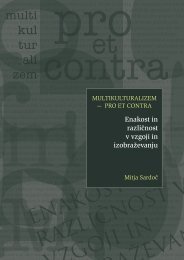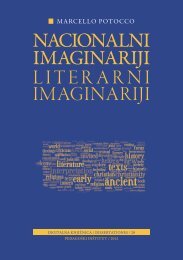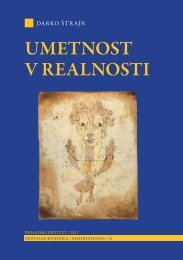Šolsko polje, letnik XX, številka 5-6, 2009: Vloga ... - Pedagoški inštitut
Šolsko polje, letnik XX, številka 5-6, 2009: Vloga ... - Pedagoški inštitut
Šolsko polje, letnik XX, številka 5-6, 2009: Vloga ... - Pedagoški inštitut
Create successful ePaper yourself
Turn your PDF publications into a flip-book with our unique Google optimized e-Paper software.
60 ŠOLSKO POLJE LETNIK <strong>XX</strong> ŠTEVILKA 5/6»Now the bases of arguments are equal in number and identical with thesubjects of reasonings. From arguments arise ‘propositions’, while thesubjects or reasoning are ‘problems’. Now every proposition and everyproblem indicates either a genus or a peculiarity or an accident; for thedifferentia also, being generic in character, should be ranged with thegenus. But since part of the peculiarity indicates the essence and partdoes not do so, let the peculiarity be divided into the two above-mentionedparts and let that which indicates the essence be called a ‘definition’,and let the remaining part be termed a ‘property’ in accordance withthe nomenclature usually assigned in these cases.« (T. I. iv. 15-23)These are the theorethical and methodological preliminaries thatlead us to topoi, not yet the topoi themselves! To be able to select subjectappropriate claims (premises for concrete (context-dependent) reasonings)from this pool of (potential) propositions, we need organa (tools).Aristotle distinguishes four:»The means by which we shall obtain an abundance of reasonings arefour in number:1) the provision of propositions,2) the ability to distinguish in how many senses a particular expressionis used,3) the discovery of differences and4) the investigation of similarities.«(T. I xiii. 21-26)Strictly speaking, we are still not dealing with topoi here, though veryoften and in many interpretations 9 the four organa as well as the fourpredicables are considered to be topoi (in the case of predicables maybeeven the topoi).Another complicating moment in this respect may be that Aristotledescribed topoi as »empty places« where concrete arguments, for differentpurposes, can be found. And even if it sounds paradoxical, it is quitelogical: if those places weren’t empty, allowing for each concrete matter tobe moulded in them, but already filled up, they just wouldn’t be commonanymore, and we wouldn’t be able to use them for each and every subjectmatter,but just in that one described and defined with the concrete contentof a particular premise.



